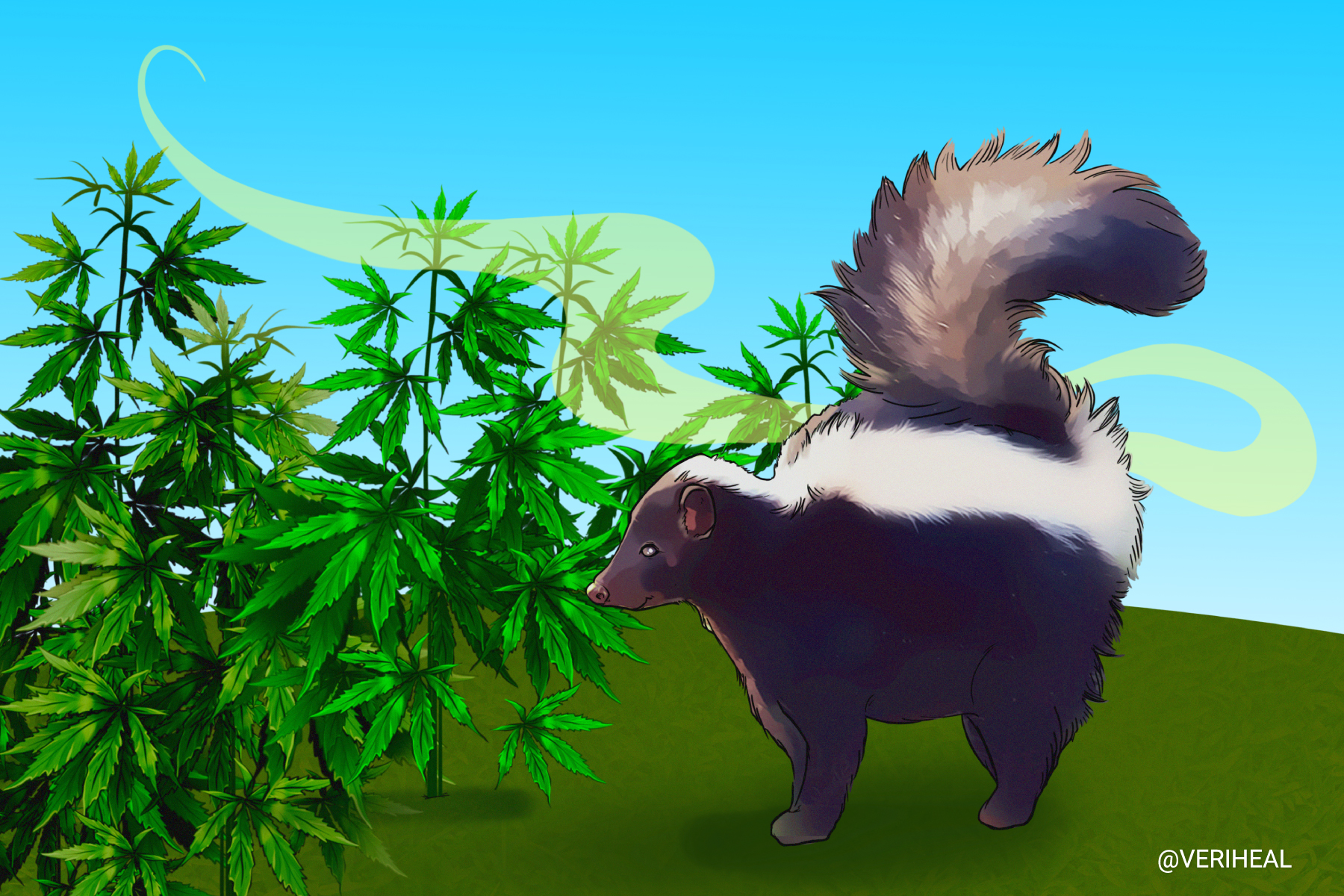Have you ever opened a jar of cannabis and noted its pungent skunk-like stench? The noxious scent of skunk spray has long been associated with cannabis- which is intense, though not as intense as an actual skunk releasing its spray in the same room as you. While some find the ‘skunky’ scent unpleasant, others do not but either way, the people want to know what causes the skunky smell coming from cannabis. Fortunately, a professor from Iowa State finally has some answers for the cannabis community. So without further adieu, let’s find out what causes the skunky smell from cannabis.
What Led to The Discovery?
The Ames Tribune explains that professor Jacek Koziel began his research on the smell from cannabis when he was exposed to bags of confiscated cannabis. The professor was “assisting a former Ph.D. student with her mapping of the substance’s compounds”. He stated that he remembered smelling the confiscated cannabis and thinking “oh yeah, this is intense”. The cannabis was donated for research to the State Forensics Laboratory in Ankeny.
The research was led by Byers Scientific and was able to identify the compound responsible for the strong, skunky aroma. It was reported that Koziel recognized the compound from when he was conducting the research with the former Ph.D. student, Somchai Rice. Koziel stated that “now with the project with Byers it’s like, ‘Oh my gosh, we saw this compound. It’s right there”… and that “now we have a confirmation of exactly what this compound is”.
The compound believed to cause the skunky smell is called 3-methyl-2-butene-1-thiol, or 321MBT. The Tribune explains that the thiol contains sulfur, which contributes with its unique smell as well as being the component added to natural gas so that it can be detected through the rotten egg-ish smell. Koziel also explains that thiol is responsible for making beer smell skunky when it’s been left in the sun.
What’s more, the 321MBT can also be found in skunk oil, which is retrieved from the anal glands of skunks. Additionally, food and beverages containing hops, a plant of the same family as cannabis, may have a skunky odor under certain conditions- much like the beer.
The Skunky Smell of Cannabis Tends to Cause Problems
The Ames Tribune made note that Rice was not a part of this research with Byers, but that the same methodology is being adapted as in Rice’s research on the smell of wine. The news report explained that this kind of research is important for “odor mitigation efforts where marijuana is grown” as well as to “measure if odor complaints are genuine or motivated by bias against weed”.
Why You Should Get Your Medical Marijuana Card
Veriheal has satisfied millions of patients nationwide by giving them access to these benefits
- Larger purchase limits
- Peace of mind
- Enhanced legal protection
- Access to higher potency strains
- Save up to 25% on cannabis purchases
- Skip the line at the dispensary
While those who like the skunky smell of cannabis may not be jumping at the chance to eliminate the scent, being able to identify the compound responsible for the smell offers the potential to minimize the ‘strong stench of agricultural production. Koziel contributed that “the interest in solving or minimizing the impact of objectionable skunky odors has taken a different importance”.
Byers Senior Project Manager, Emily Long, explained that the first state to legalize recreational cannabis was unprepared for the strong smell coming from the agricultural production of cannabis. She also explains that the state, Colorado, “didn’t anticipate the odor issues prior to legalizing”. Byers Vice President of Business Development, Jim Rembusch, explains that large-scale producers are making use of carbon systems to minimize the smell but added that this “would really only work on a small-scale production”.
This New Discovery Can Help Odor Mitigation
Examples of what can happen when states are not prepared to mitigate odor include a news report where the cannabis farm odor “hurt neighbor’s property value near Cheney’‘ as well as “‘Dead Skunk’ Stench from Marijuana Farms Outrages Californians”. It does not take much to imagine the rest of the news reports. However, it is clear that those who do not consume cannabis, are very unsettled and unhappy as a result of the odor.
Koziel explains that the identification of the MBT component, which is one of “roughly” 400 compounds found in cannabis, opens up the opportunity to remove it through biological, chemical, or physical means as well as by breeding cannabis with less MBT. An additional benefit is that it offers a means of assessing the effectiveness of odor mitigation. The tribune offers an example of a parent who is “concerned” over “a marijuana operation” which has opened up in the area, which means “they may be complaining before” there is even a smell.
Rembush explains that this identification allows them to measure the compounds collected by filtration devices. Once they are able to see how many of the compounds, and whether it includes MBT, which then allows “them to mathematically prove the system is working and a complaint is disingenuous”. Which makes sense when you consider that the stigmas attached to cannabis continue to plague perception when it could be a valuable medicinal asset.
If you do not wish to grow or consume cannabis with strong, skunky or gassy odors, then it is best to avoid the following strains. The Green Flower News reported that Chemdawg, Giesel, Gelato, Miracle Alien Cookies, White Tahoe Cookies, SFV OF Kush as well as Death Star are common strains which are considered gassy, or even chemical and skunky.
Author, Share & Comments
















